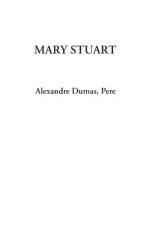Darnley in wedding Mary had not become king, but merely the queen’s husband. To confer on him authority nearly equalling a regent’s, it was necessary that Mary should grant him what was termed the crown matrimonial—a crown Francis II had worn during his short royalty, and that Mary, after Darnley’s conduct to herself, had not the slightest intention of bestowing on him. Thus, to whatever entreaties he made, in whatever form they were wrapped, Mary merely replied with an unvaried and obstinate refusal. Darnley, amazed at this force of will in a young queen who had loved him enough to raise him to her, and not believing that she could find it in herself, sought in her entourage for some secret and influential adviser who might have inspired her with it. His suspicions fell on Rizzio.
In reality, to whatever cause Rizzio owed his power (and to even the most clear-sighted historians this point has always remained obscure), be it that he ruled as lover, be it that he advised as minister, his counsels as long as he lived were always given for the greater glory of the queen. Sprung from so low, he at least wished to show himself worthy, of having risen so high, and owing everything to Mary, he tried to repay her with devotion. Thus Darnley was not mistaken, and it was indeed Rizzio who, in despair at having helped to bring about a union which he foresaw must become so unfortunate, gave Mary the advice not to give up any of her power to one who already possessed much more than he deserved, in possessing her person.
Darnley, like all persons of both weak and violent character, disbelieved in the persistence of will in others, unless this will was sustained by an outside influence. He thought that in ridding himself of Rizzio he could not fail to gain the day, since, as he believed, he alone was opposing the grant of this great desire of his, the crown matrimonial. Consequently, as Rizzio was disliked by the nobles in proportion as his merits had raised him above them, it was easy for Darnley to organise a conspiracy, and James Douglas of Morton, chancellor of the kingdom, consented to act as chief.
This is the second time since the beginning of our narrative that we inscribe this name Douglas, so often pronounced, in Scottish history, and which at this time, extinct in the elder branch, known as the Black Douglases, was perpetuated in the younger branch, known as the Red Douglases. It was an ancient, noble, and powerful family, which, when the descent in the male line from Robert Bruce had lapsed, disputed the royal title with the first Stuart, and which since then had constantly kept alongside the throne, sometimes its support, sometimes its enemy, envying every great house, for greatness made it uneasy, but above all envious of the house of Hamilton, which, if not its equal, was at any rate after itself the next most powerful.




